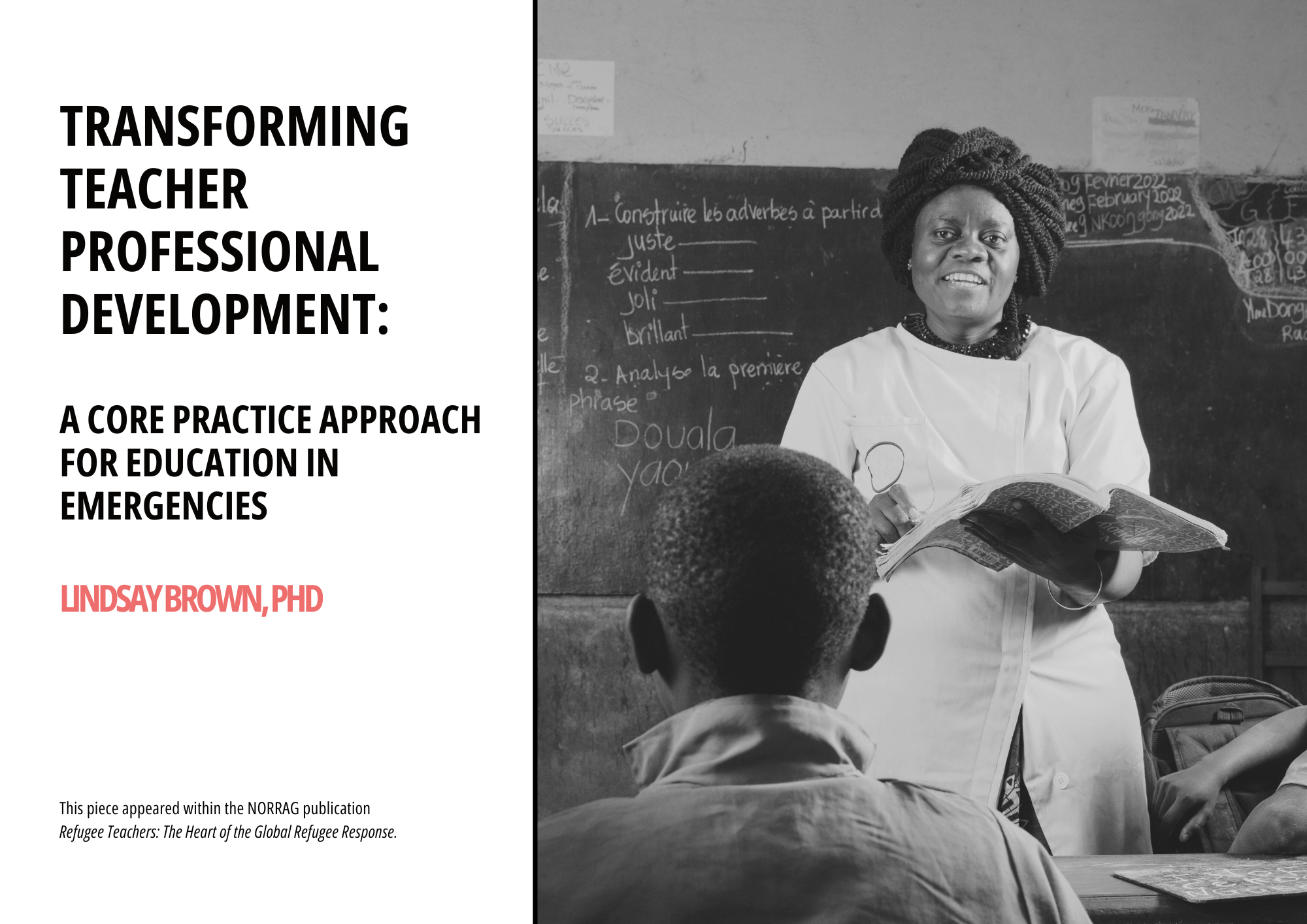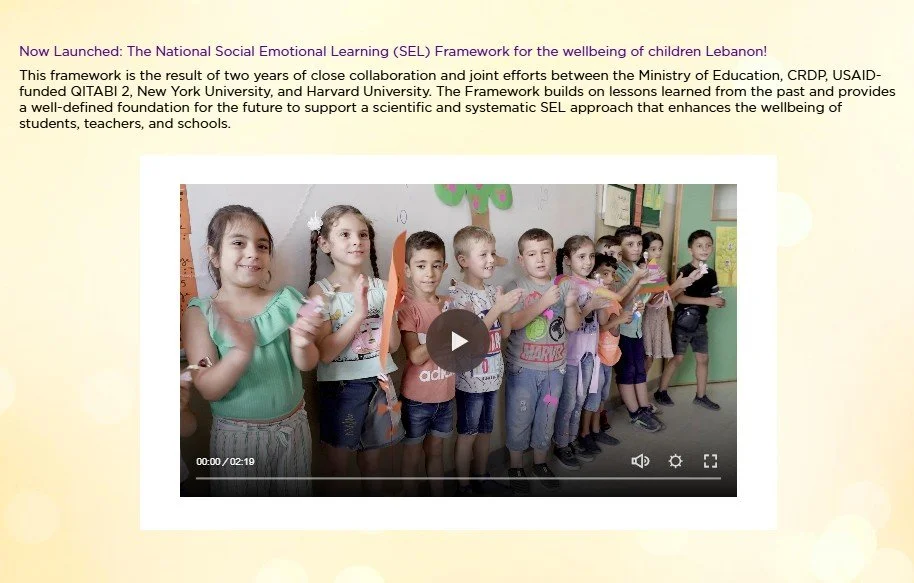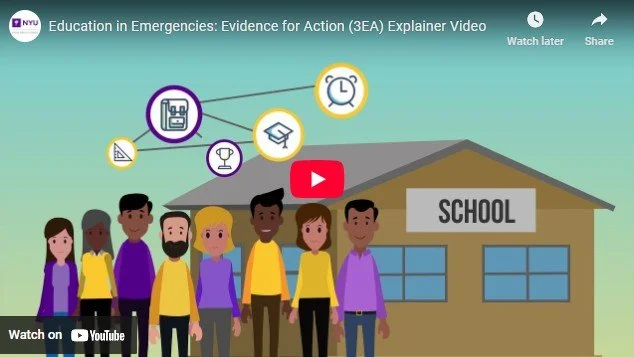Resources
Competing or complementary goals for primary education: social-emotional learning across the Nigerien education system
This paper explores how SEL is perceived and implemented in the primary schools of conflict-affected Diffa, offering a unique lens into the diverse interpretations of SEL by various stakeholders.
Through a meticulous analysis of 58 semi-structured interviews encompassing a broad spectrum of perspectives—from Ministry officials and NGOs to school directors and parents—this study uncovers five distinct conceptualizations of SEL. Each reflects the priorities and concerns rooted in the stakeholders' experiences with conflict, trauma, psychosocial challenges, poverty, and religious beliefs. These findings highlight the varied expectations and objectives for SEL among different groups and show the complexity of integrating such programs in environments where education itself is under siege by myriad challenges.
Authors: Sarah Kabay, Hirokazu Yoshikawa, and Lindsay Brown.
KEYWORDS: Primary Education, Sub-Saharan Africa, Emotional Learning, Social Development, Conflict Resolution
Patterns of self-regulation and emotional well-being among Syrian refugee children in Lebanon: An exploratory person-centered approach
This study explores patterns of self-regulation and emotional well-being among Syrian refugee children in Lebanon, employing a person-centered approach, responding to theoretical challenges articulated by Dante Cicchetti and other psychologists. Using latent profile analysis with data from 2,132 children, we identified seven distinct profiles across cognitive regulation, emotional-behavioral regulation, interpersonal regulation, and emotional well-being. These profiles showed significant heterogeneity in patterns of self-regulation across domains and emotional well-being among Syrian children. Some profiles consistently exhibited either positive (“Well-regulated and Adjusted”) or negative (“Moody and Frustrated”) functioning across all domains, while others revealed domain-specific challenges, e.g., particularly sensitive to interpersonal conflict. This heterogeneity in the organization of self-regulatory skill and emotional well-being challenges the traditional homogeneous view of child development in conflict settings. The study also underscores the profiles’ differential associations with demographic characteristics and experiences, with school-related experiences being particularly salient. We discuss the implications of these findings for future research in developmental psychopathology on self-regulation and emotional well-being in conflict-affected contexts. In addition, we advocate for tailored interventions to meet the diverse needs of children affected by conflict.
NORRAG Spotlights Dr. Lindsay Brown's Vision for Teacher Professional Development in Education in Emergencies
This brief discusses the Core Practice approach for transforming teacher professional development, particularly in fragile contexts. It outlines how Core Practices, a set of evidence-based, high-impact teaching techniques, can enhance student learning outcomes by offering an approach that is practical, coherent, and adaptable. A Core Practice approach offers a structured and concrete practice-based learning cycle that has been shown to increase teacher uptake of practice in diverse and challenging environments. The framework also fosters a common vision and language of high-quality teaching practice, increasing collaboration and consistent messaging among educational stakeholders.
Thinking outside the classroom: Theories of change and measures to support the design, monitoring, and evaluation of distance learning programs
This report is intended to be a living framework for thinking and talking about distance education interventions, beginning in low- and middle-income (LMIC) and humanitarian contexts and expanding over time to include distance education interventions designed for high-income contexts.
Now Launched: The National Social Emotional Learning (SEL) Framework for the wellbeing of children Lebanon!
This framework is the result of two years of close collaboration and joint efforts between the Ministry of Education, CRDP, USAID-funded QITABI 2, New York University, and Harvard University. The Framework builds on lessons learned from the past and provides a well-defined foundation for the future to support a scientific and systematic SEL approach that enhances the wellbeing of students, teachers, and schools.
Comprehensive Study of Refugee Children's Academic, Social, and Emotional Learning Outcomes Yields Key Insights for Post-COVID-19 Return to School
Researchers at Global TIES for Children, an international research center based at NYU Abu Dhabi and NYU New York, examined a variety of post-migration risks faced by Syrian refugee children enrolled in Lebanese public schools and found that students being older than expected for the grade in which they were placed was most consistently and strongly associated with developmental and learning difficulties. As many schools around the world prepare to reopen in 2020 and beyond, the study provides critical insights that can help inform efforts to reintegrate children into schools after significant disruption and time away.
Education in Emergencies: Evidence for Action (3EA) Explainer Video
This explainer video is focused on “Building a Science for Action”: Lessons learned and practical advice for researchers and practitioners to move the field towards building science for action. The 3EA initiative, born out of a research-practice partnership between TIES and the International Rescue Committee, aims to generate evidence and tools on what works to improve children’s holistic learning and development. This work also aims to improve the quality of program implementation and to answer the questions of what works, how, for whom, and under what conditions.
Global TIES for Children study informs research of child development and learning in conflict-affected areas
To provide effective aid to children who live in areas of conflict it is necessary to understand precisely how they have been impacted by the crises around them. One area of importance is the effect of conflict and trauma on a child’s development and education.
In a new paper, Global TIES for Children researchers J. Lawrence Aber, Carly Tubbs Dolan, Ha Yeon Kim, and Lindsay Brown, present a review of opportunities and challenges they have encountered in designing and conducting rigorous research that advances our understanding of this effect.









